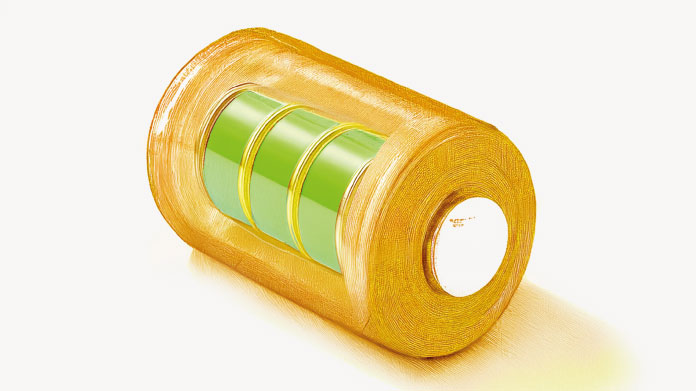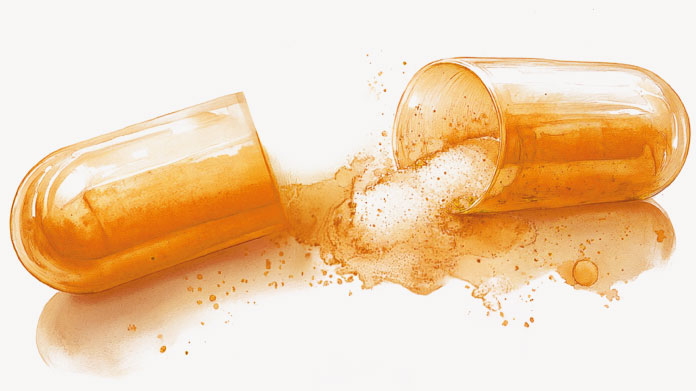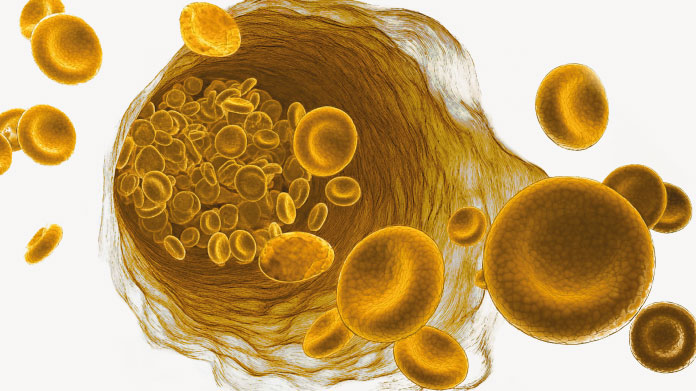
Seaweed is high in protein
Protein is an essential macronutrient (along with carbohydrates and fat), as it plays a structural role in the body (participating in muscle cell production, for example) and is involved in digestive and immune system metabolism; it is also the body’s only source of nitrogen. Seaweed is generally high in protein (though content varies depending on the variety, red seaweed being the richest), making this food a valuable additional source of this essential nutrient. Red seaweed, for example, contains more protein than soya even though the latter is usually regarded as the no. 1 plant protein.
Seaweed is packed with fibre
Seaweed is particularly high in fibre, especially soluble fibre. An average 8 gram portion of seaweed covers up to one-eighth of our daily requirements for fibre. Dried seaweed is even better - up to 50% of its weight consists of fibre. Why is this an advantage? Because fibre affects satiety and therefore helps control weight (by regulating appetite), accelerates food transit, lowers ‘bad’ cholesterol and prevents cardiovascular disease and type 2 diabetes … According to a study published in 2000 in the journal Nutrition Research the fibre in seaweed may be more effective at controlling diabetes and cholesterol than that from other dietary sources.
Seaweed helps keep you trim
Because it’s high in fibre, but very low in calories (around 40-45 per 100g on average) and low in fat, seaweed is a valuable aid to those watching their figures. It expands in the stomach and thus has a hunger-suppressing effect. Another benefit is its gelling properties. For example, as a substitute for gelatin, agar-agar helps produce ultra-light and tasty products (vegetable mousses, fruit jellies …) provided the right dose (4g per litre) is used. And seaweed’s slimming benefits are used in some dietary supplements (Fat & Carb Blocker), designed to aid weight loss.
Seaweed boosts immunity
This is particularly so with brown seaweed because it contains fucoidan. A large number of studies conducted across the globe over several years suggest this polysaccharide may boost the immune system.
Seaweed may prevent some forms of cancer (according to some scientific studies)
Research conducted on rats suggests seaweed may have a protective effect against some types of cancer, particularly hormone-dependent forms such as breast or prostate cancer. Now human studies are needed to confirm these highly promising findings. Another study from 2010 showed that the plant sugar compound fucoidan present in brown seaweed may improve the efficacy of chemotherapy.
Seaweed is chock-full of vitamins
In general, seaweed is packed with vitamins, particularly A, B2, B9 (folic acid), B12 and K. The dulse and nori varieties have the highest vitamin content (except for vitamin K).
Seaweed is generally rich in antioxidants
Seaweed contains carotenoids, vitamins, flavonoids, tannins … So many compounds with proven antioxidant benefits. However, these antioxidant properties vary according to the type of seaweed (colour or depth of colour plays a role), but the absolute ‘must-have’ variety is Ecklonia cava, a brown seaweed highly-prized in Japan and Korea, and the no. 1 choice for antioxidant power.
It’s simple to cook with seaweed
Seaweed is available in two forms: dried or fresh. When dried whole, it needs to be rehydrated (for 5-40 minutes depending on the variety) in a little warm water before use. It can then be easily incorporated into soups, salads, pasta or rice … In dry powder form, it can be sprinkled over salads or added to dishes. If using fresh seaweed, it should be rinsed thoroughly before use. It can then be eaten in salads or cooked al dente or until tender, according to preference. You can then add it to whatever recipe you choose.
There is a wide variety of edible seaweed
Most of us are aware of the nori and wakame types of seaweed which feature prominently in Asian cuisine (nori is used to make maki sushi). But there are many other varieties of edible seaweed available, including here in Europe. Dulse, kombu, sea lettuce, kelp, hijiki, sea spaghetti, spirulina and agar-agar are all types of seaweed that can be consumed either as food or as dietary supplements (to benefit directly from their health properties).
Seaweed is good for the heart
Danish scientist Ole G. Mouritsen maintains that consuming 5-10g of seaweed a day may significantly lower your risk of developing cardiovascular disease. Why? Because it is high in fibre and antioxidants which reduce levels of the ‘bad’ form of cholesterol.
66 Days
Fiables y Recomendables
Como siempre estáis siempre ofreciendo alternativas naturales a los diversos problemas de Salud con un buen despliegue de información y una variada gama de productos. Y os felicito por el servicio de entrega que hacéis ahora que supera con creces el de antes.
Mariano Navarro Sanchez
66 Days
produits innovants
produits innovants, avec une composition claire
véronique de sainte marie
66 Days
Ravie et Très Satisfaite de Ma Commande…
Ravie et Très Satisfaite de Ma Commande et de Mes Commandes Très Bons Produits
Brigitte D.
66 Days
Produits fiables
Produits fiables
jacqueline
66 Days
Tout est OK 👌
Tout est OK 👌
RICHARD Bertrand
67 Days
Bestelle das Produkt seit Jahren immer…
Bestelle das Produkt seit Jahren immer wieder ist echt super, Preis Leistung ist ok könnte noch ein bisschen billiger sein aber sonst ok
SONJA Hofbauer
67 Days
Commentaire
Excellent services
DIDDY Mohamed
67 Days
Livraison rapide
Livraison rapide
devouass
67 Days
Schnelle Lieferung
Schnelle Lieferung. Gute Begleitung der Lieferung
SCHARWAECHTER Hans Juergen
67 Days
Efficace rapidement
J’ai commencé à prendre les facteurs de croissance osseuse alors que j’étais en plein accès douloureux d’ostéoporose. Mon état s’est stabilisé en quelques jours puis les douleurs ont diminué régulièrement. Je pense continuer ce remède pendant quelques mois puis 1 gélule par jour et une pause etc..
Françoise Delfour
67 Days
Rapidité de livraison avec prestataire…
Rapidité de livraison avec prestataire fiable ! Toujours impeccable.
Virginie
67 Days
Siempre buenas experiencias y cada vez…
Siempre buenas experiencias y cada vez más rápidos los envíos
Elsje Fokkelman
67 Days
Livraison rapide et en parfait état
Livraison rapide et en parfait état. Jamais d'erreur.
WUILLEMIN Sylvie
68 Days
J'ai trouvé rapidement sur le site le…
J'ai trouvé rapidement sur le site le complément qui m'était nécessaire et la livraison a été très rapide. Merci.
Client
68 Days
Je recommande ces produits
Facilité pour passer les commandes. Délais de livraison tenus. Produits de qualité. Je suis cliente depuis longtemps et très satisfaite.
Alexandre PUBERT



